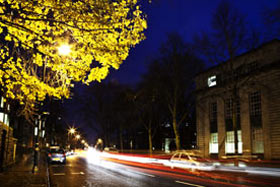Our project
Concerns regarding climate change and the security of energy supplies mean that the transition to a secure, affordable and low carbon energy system has become a key objective of UK energy policy. It is now widely accepted that to achieve this aim we need to focus not only on low carbon forms of energy production, but also innovative ways to reduce our consumption of energy – whether in the home, workplace or in transportation. We know that achieving significant reductions in energy consumption is not easy, and strategies to reduce energy demand need to be informed by systematic research evidence showing how and why people develop and maintain particular energy intensive lifestyles and practices. The project takes an innovative biographical approach to this question, by investigating people’s current energy use in terms of their own understandings of energy against the backdrop of their particular life-course trajectories.
Our energy practices do not exist in isolation but are established across multiple spaces such as home, transport and work, and through a complex interplay between our own personal histories, where we come to make investments in using more or less energy intensive services, and the wider social and technical developments of particular energy systems. Building from the established understanding that people do not use energy, but rather the services made possible by energy, we adopt a holistic approach that brings into view the formation, embeddedness and development of energy practices as part of everyday life and the life-course. We use the term “energy biographies” to represent this approach, which offers the possibility to develop understanding of how significant reductions in energy use can be achieved through identifying openings for change in energy intensive life-course trajectories. We aim to:
Objectives
- Develop understanding of energy use by investigating and comparing people’s different ‘energy biographies’ across a range of social settings
- Examine how existing demand reduction interventions interact with people’s personal biographies and histories
- Develop improved understanding of how different community types can support reductions in energy consumption
We will also be exploring the usefulness of innovative (narrative, longitudinal and visual) research methods for helping people reflect on the ways they use energy.
To achieve the above objectives we will do in-depth longitudinal qualitative fieldwork in three case site areas, within several different communities – see Project Design and Methods and Case Sites for more details.



Views of Cardiff at night